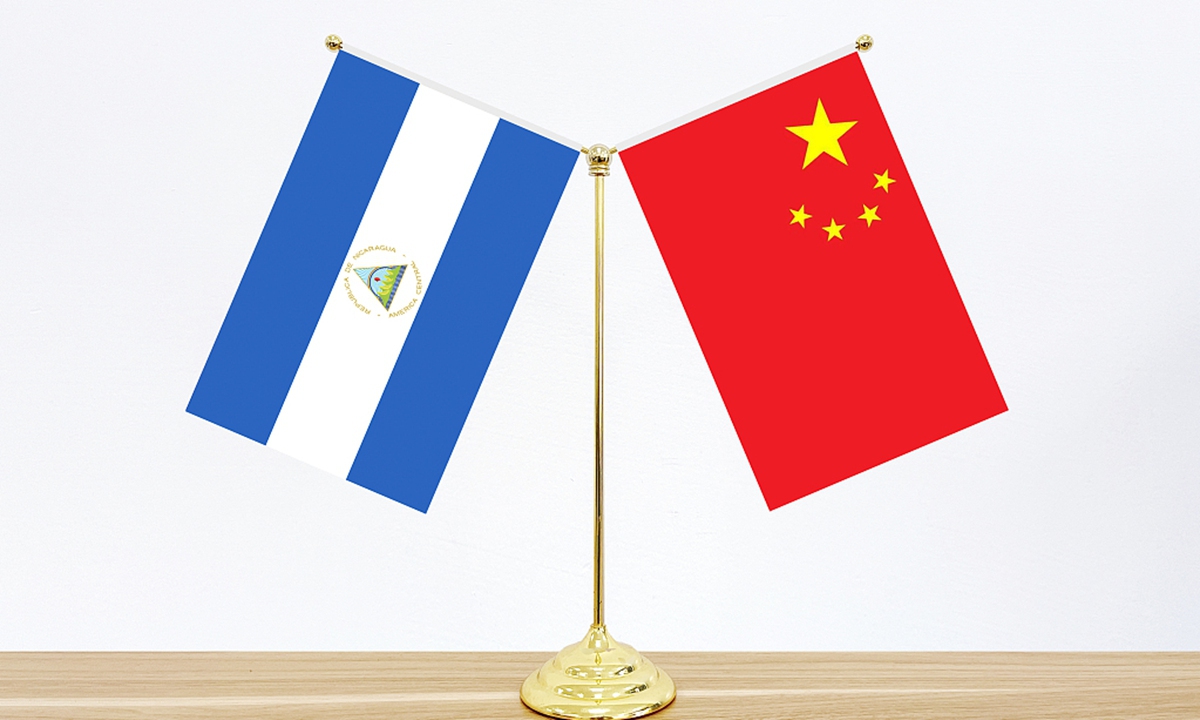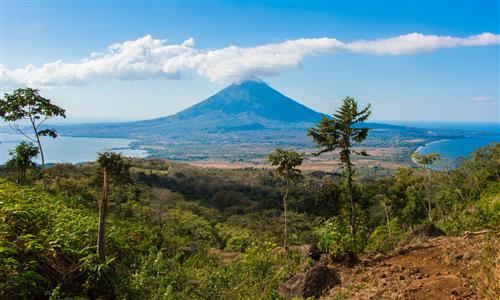Latin American and Caribbean countries welcome Chinese investors with open arms: Nicaraguan Ambassador to China

China Nicaragua Photo: CFP
Editor's Note:
Nicaragua, a Central America country, is benefiting from strengthening economic and trade relations with China. According to statistics from China's General Administration of Customs, the bilateral trade volume between China and Nicaragua reached $850 million in 2023, marking a 13.5 percent year-on-year increase, reflecting the continuous improvement of the economic and trade relations between the two countries. China and Nicaragua boast strong economic complementarity, reflecting the immense potential for future cooperation, particularly as part of the China-proposed Belt and Road Initiative (BRI). In an exclusive interview with the Global Times (GT) reporter Yin Yeping, Michael Campbell (Campbell), Ambassador of Nicaragua to China, shared how he sees the opportunities China has to offer, calling for stronger cooperation while defying US-led attempts of intensified "decoupling" targeting China.
GT: How do you see the opportunities that the Chinese market can offer to companies in your country?
Campbell: Latin America and the Caribbean, for various region, for various reasons, is a producer and an exporter, mainly of a few agricultural and commodity products, especially toward Asia, Europe, and the rest of the world.
Almost all of what we produce historically has been sent to the market of the US. China, with its technology, with its investment capacity, with initiatives, such as the BRI, is creating opportunities for Latin America and the Caribbean to diversify their products and to add value of their products.
It's also helping us to finally develop our infrastructure, transportation, communications, and everything from potable water to other things that we have historically wanted to develop.
We are improving our infrastructure, increasing our production capacity. We're also being able to export to a new market that we don't necessarily know enough about after the free trade agreements (FTA) between Nicaragua and China took effect on January 1 this year. More and more private companies from China are also making that fundamental decision to invest in Latin America and the Caribbean to help us to produce more and export.
Latin American and Caribbean countries are welcoming Chinese investors with arms wide open. And the BRI is having a very, very important impact in our own development, in meeting our own priorities and needs which in the end will not only help Latin America and the Caribbean, but also will help the relationship between China and the region.
GT: The US is intensifying its "decoupling" push against China, and has recently announced the decision to hike tariffs on Chinese electric vehicles. How do you respond to these moves?
Campbell: One of the most ridiculous proposals and probably a proposal that is just made in the framework of the electoral campaign in the US is to increase tariffs on Chinese electric vehicles. This is a key example of the intention of decoupling - the proposal of decoupling very important supply chains. It doesn't make any sense. In the end, it will increase costs to the American people. It goes against everything that we are trying to do to fight against global climate change, because new-energy vehicles are fundamental part of the efforts that we have to make if we really want to slow and reverse the effects of climate change. Latin American and the Caribbean is a region that has historically been affected by the policies of the US. We haven't been able to develop our economies independently. We haven't been able to prioritize our own key strategic projects.
For example, in Central America, we are at the heart of the Americas with all this potential as a hub for the region. We have very limited infrastructure. The US, which has been seen as a hegemony throughout our history, has systematically blocked our access to these important projects.
Also that so-called "backyard policy" goes against everything that Latin America and the Caribbean wants to achieve, just as we have been always exposed to these type of economic aggressions by the US.
Now, China, as it continues to become a more and more important player in the global stage, is also facing the economic aggressions and sanctions of the US. We condemn these policies. We don't think that will help the people of the US. And ultimately, it will cause tremendous setbacks to global economic growth, and also to fighting against climate change.


